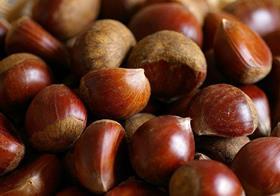
Representatives of Italian agricultural organisations Confagricoltura, Cia and Fedagri are to meet with leading Turkish producers and exporters, as well as officials from the European Commission, to thrash out new guidelines on the sale of hazelnuts on the international market.
The summit, which is due to take placeon 28 September 2010 in the town of Caprarola in central Italy, is aimed squarely at developing and implementing market checks in order to avoid a possible future collapse in world prices.
'This important meeting between the European Union and Turkey comes at the right moment because the Turkish government recently approved measures to fund new planted area for hazelnut producers which will make Turkish product even more competitive in economic terms compared with Europe's,' the organisations said in a statement.
Turkey is responsible for producing a staggering 65 per cent of global nut volumes each year, followed by Italy in second place.
Around 90 per cent of Italian nut production is concentrated in four main regions: Cuneo and Asti in Piedmont; Viterbo and Rome in Lazio; Avellino, Salerno and Naples in Campania; and Messina (Nebrodi) and Catania in Sicily.
Until now, the Turkish government controlled hazelnut prices by withdrawing product from the market when necessary and storing it, so as to avoid flooding international markets.
However, the recent closure of the state-controlled agency Fiskobirlik, which managed these withdrawals, and a gradual decline in world hazelnut prices in recent years have provoked much concern among European producers – above all Italians – who, unlike their Turkish counterparts – have not seen an increase in such institutional support.
According to the three organisations, hazelnuts are generally grown in areas of Italy where there is no obvious alternative use for the land.
'We are concerned about the impact that Turkish government decisions will have on the price of the product and the consequences that can have for the profits made by Italian growers and cooperatives,' the statement added.
'For that reason we have organised this annual meeting in Italy which, besides commercial matters, in the presence of the European Commission should also confront topics like the harmonisation of phytosanitary standards, to prevent the kind of unfair competition they could otherwise entail.'



